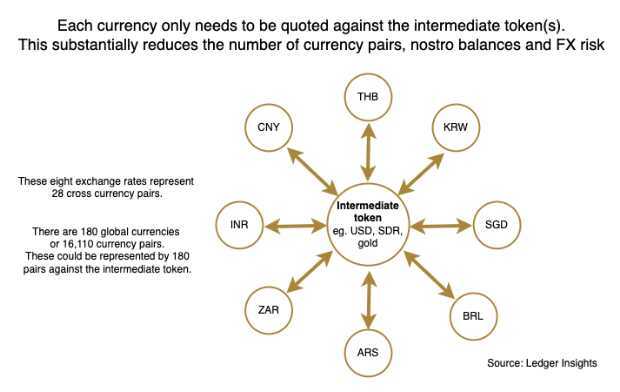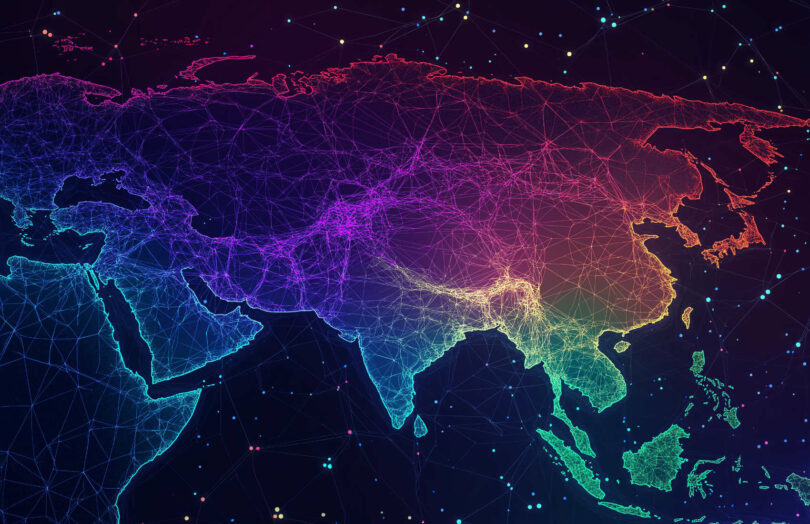There’s a news report circulating that China announced it had linked its digital RMB cross border payment system to ten ASEAN countries and six Middle Eastern jurisdictions. We have not been able to trace this to a reliable source, so it may be fake news. However, the substance of the report is not a million miles from the facts. It’s likely jumping the gun by a few years.
China is a member of mBridge, a cross border payments joint venture using central bank digital currency (CBDC). The Chinese end of any payments uses its digital RMB CBDC, but mBridge does not belong to China. Other member countries include Hong Kong, Thailand, the UAE and Saudi Arabia. As of late last year there were a couple of dozen observers. If one counts the observers (which is a big leap) then it would have covered five ASEAN countries and six Middle Eastern ones.
Why mBridge is not a threat. Yet.
The first English language report about the ASEAN/Middle East footprint came from a Nigerian outlet Proshare. It noted that the news implies “that about 38% of global trade could bypass the US dollar dominated SWIFT network.”
In order for it to reach 38%, not only would all the central banks in each of these countries have to be connected to mBridge, but so would all their commercial banks. Judging by the slow and gradual adoption of mBridge by Chinese banks, today that 38% is extremely theoretical. That’s not to say it couldn’t be a substantial figure in a few years.
Additionally, in order to reach 38%, all the countries would have to shift 100% of cross border payments to local currencies. Today a large proportion of trade is denominated in dollars.
There’s a good reason for that.
For virtually every country in the world, their optimal foreign exchange rate with the narrowest margin is against the dollar. That’s because having a single intermediate currency means there are a lot more buyers and sellers for that exchange rate. By contrast, if you look at every cross currency exchange rate, for 180 global currencies there are 16,110 cross currency rates, most of which are thinly traded, making them expensive.

If a trader chooses to invoice in their local currency or the currency of their customer, one or both of them will have to suffer the cost of a suboptimal exchange rate.
So even if the government thinks local currency is desirable, the cost of choosing the trading currency falls on merchants, who usually want to save money, so they choose dollars.
No reliable source for the announcement
We prefer to go back to the original source of news. We monitor Chinese language news daily, specifically on digital payments, and had not come across this ASEAN/Middle East report. Two or three times a week we see announcements about various Chinese banks making different types of mBridge transactions for the first time.
We found at least two Chinese language articles about this ASEAN report that pre-dated the Proshare article. However, they were from smaller outlets and one of the posts is now inaccessible. The other one controversially mentions Iran as a participant. A major Chinese news outlet, Sina, ran an article about the ASEAN and Middle Eastern links in the last couple of days, but that has also been taken down.
There was reference to an original Chinese news story that was allegedly published on 17 March 2025, which happened to coincide with a People’s Bank of China visit by Hank Paulson, the former US Secretary of the Treasury under George W Bush.
There are two possibilities: the news is true, but was taken down because of sensitivities regarding US tariffs. Or the news is false and sites were instructed to take it down for that reason.
mBridge, the cross border payment solution
In 2023 we wrote about mBridge and the coming cross border payments fragmentation. The solution launched as a minimum viable product in June 2024. A few months later, rumors circulated that the Bank for International Settlements (BIS), the central bank of central banks, was thinking of withdrawing because a sanctioned country might get involved. At the time, Russia regularly mentioned the similar sounding BRICS Bridge.
In November 2024, the BIS stepped away from its mBridge involvement, saying the project had graduated. During his talk about the handover, BIS General Manager Agustín Carstens said that the BIS could not be involved with sanctioned countries, and that mBridge was never designed to cater to BRICS, but was intended as a broader public good.
As we noted earlier, at that stage there was one ASEAN mBridge member, Thailand, and four ASEAN observers: Cambodia, Indonesia, Malaysia and the Philippines, giving a total of five (rather than the ten reported). There were already two Middle Eastern members, the UAE and the newly joined Saudi Arabia. Plus there were four Middle Eastern observers: Bahrain, Egypt, Jordan and Turkey. At that stage there was no mention of Qatar or Iran which are allegedly currently participating.
There’s also a big difference between being an observer and becoming a member. For those that become members, first the central bank has to perform some integration and then commercial banks have to integrate as well.
It’s extremely unlikely that in five months mBridge has gone from one active ASEAN country to ten and from two active Middle eastern ones to six. Hence, the report is most likely false.

🙏Please Support My Work 🙏
If you find value in my content, consider showing your support:
💳 PayPal – Simply scan the QR code 📲
🔗 Crypto – Support via Coinbase Wallet to: [email protected]
Your generosity keeps this mission alive! Namasté 🙏✨ #SupportIndependentMedia #Crypto












 All while Pfizer—a company with a $2.3 billion criminal fine for fraudulent marketing, bribery, and kickbacks—was given blanket immunity from liability and billions in taxpayer dollars to produce a vaccine in record time with no long-term safety data.
All while Pfizer—a company with a $2.3 billion criminal fine for fraudulent marketing, bribery, and kickbacks—was given blanket immunity from liability and billions in taxpayer dollars to produce a vaccine in record time with no long-term safety data.
























